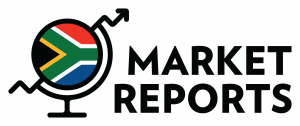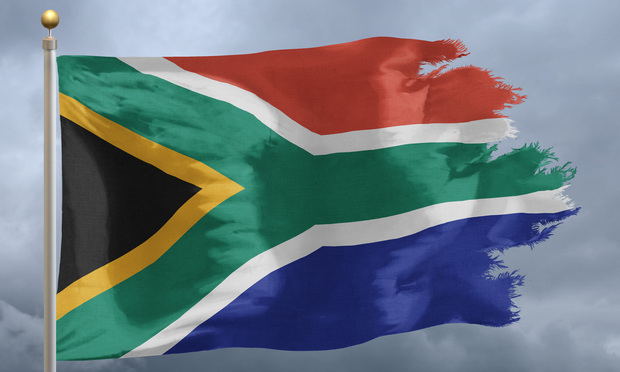Market Report: South Africa's Volatile Dealflow Puts Pressure On Profits
A drop in transactional work has been somewhat offset by a need for regulatory lawyers, but many law firms are still feeling the strain.
February 14, 2020 at 01:45 AM
6 minute read
South Africa's legal industry has had something of a mixed year.
The country's weak economy and issues around state capture, bribery and corruption have made investors wary of pursuing deals there. Then again, there are high volumes of work  flowing in from other areas such as litigation, regulatory advice and restructuring.
flowing in from other areas such as litigation, regulatory advice and restructuring.
The country's leading commercial law firms – which include the likes of Bowmans, ENSafrica and Webber Wentzel, as well as Cliffe Dekker Hofmeyr (CDH), Norton Rose Fulbright and Werksmans Attorneys – had to make do with a quiet transactional market in 2019. There were 110 deals during the year, worth a total of $6.4 billion, according to data provider Mergermarket, which made it the worst year for M&A for at least five years.
One of Bowmans' M&A deals that had been on the go for 18 months but fell through in 2019 was the R7.6 billion ($511 million) bid by German family–owned investment group Aton to acquire control of mining contractor Murray and Roberts, in which it already has a 44% stake. But in late September Aton, withdrew its bid, citing opposition from the M&R board and from the South African competition authority.
"There would be more M&A transactions if the government were not so interventionist," said Bowmans' chairman Robert Legh.
In addition, IPOs have been practically non-existent during the past year, according to Gasant Orrie, corporate and commercial director at CDH.
"The raising of capital through public listings is falling out of favour. Not one new listing took place in the past year, although there were new companies listed as a result of unbundlings," he explains. "In fact, there have been more delistings than listings."
The recently introduced Competition Amendment Act, which includes provisions for protecting the interests of local smaller black businesses will also make public listing processes more complex, Orrie adds.
"There would be more M&A transactions if the government were not so interventionist."
In such an environment, several partners said profits per partner have been under strain, due largely to clients expecting more value out of their legal spend.
"In the current stressed economic climate, some clients are insisting on fixed or collapsed fees and shared risk on transactions, Orrie says. "You can no longer just send an invoice."
Doron Joffe, corporate commercial director at ENSafrica, adds that some clients want to pay a set amount for M&A, which can involve many unknown factors, such as the transaction dragging on far longer than anticipated. "Factors like this are beyond our control," he says.
The Bright Side
But many in the market remain optimistic despite the difficult conditions.
"While M&A activity may be down, in the other areas our lawyers are busier, and this leads to the firm as whole being stable," says Joffe. "Our size and wide array of practice areas assist us in mitigating the impact of an economic downturn."
Independent commercial law consultant David Lancaster explains: "When the economy is in the terrible place it is now, there is a flight to quality and companies tend to turn to the top firms for the work that needs to be done."
"When the economy is in the terrible place it is now, there is a flight to quality."
Similarly, Baker McKenzie's Johannesburg managing partner Morne van der Merwe says: "Our firm has not been hurting at all, in fact we have grown and expanded our revenue base, due to our hedged business model."
His firm advised South African mining corporation Impala Platinum in its acquisition of Canadian company North American Palladium in an R11.3 billion ($759 million) deal, and also acted for Bidvest group on its acquisition of UK hygiene company, PHS Group, from the Anchorage Capital Group in a R9.1 billion ($611 million) deal.
"These two deals are an indication of a trend towards blue chip South African companies investing offshore," said van der Merwe.
Restructuring activity has also been busy. Baker McKenzie has recently been working on the restructuring of multinational steel manufacturing company ArcelorMittal South Africa and on the disposal programme of international infrastructure and resources company Aveng.
Stephen Kennedy-Good, director and group leader of Norton Rose Fulbright's corporate practice points to the firm's advice on governance and ensuring directors comply with their responsibilities. "The collapse of companies like [retailer] Steinhoff has brought the need for compliance into sharp focus."
Work has also been flowing in from other areas too, such as ensuring compliance with the new BBBEE (broad based black economic empowerment) regulations, which, among other things, affects M&A, according to ENSafrica's Joffe.
2020 Vision
On projections for the coming year, Peter Cromberge, South Africa bureau chief at Mergermarket says, "In 2020, South African M&A will inevitably be affected by the headwinds facing the local economy."
"In 2020, South African M&A will inevitably be affected by the headwinds facing the local economy."
He said these hurdles include significant uncertainty surrounding state electricity utility Eskom and the burgeoning level of national debt. "Local M&A will likely be driven by corporate restructuring, consolidation and some cross-border deals."
This is set to include significant restructuring work expected from the splitting up of state owned local power utility Eskom into three parts, and from the South African Airways (SAA) business rescue situation, says Bowmans' Legh.
"SAA's services are likely to be diminished and some parts sold off. Among these, SAA Technical, plus its low cost airline Mango, and its catering company are likely candidates for sell-off," he says.
Bowmans is currently acting for PepsiCo to acquire Pioneer Foods in a deal expected to go ahead in the first quarter of 2020.
"We are also acting for RMB Holdings in the unbundling of First Rand Bank and other interests," adds Legh.
As a result of such activity, many local firms are still growing. Bowmans, ENS and Webber Wentzel have all hired several new partners during the past year.
And many are also looking beyond South Africa to ensure they remain well hedged.
Some 25% of Bowman's revenues are currently generated by its African business, according to Legh.
An increasing amount of ENSafrica's revenues also come from its operations in Africa, where it has a presence in seven countries.
Joffe explains: "Many African countries are increasing their GDP by 8% to 10% per annum, and we see this as a huge area for growth during the coming year."
This content has been archived. It is available through our partners, LexisNexis® and Bloomberg Law.
To view this content, please continue to their sites.
Not a Lexis Subscriber?
Subscribe Now
Not a Bloomberg Law Subscriber?
Subscribe Now
NOT FOR REPRINT
© 2025 ALM Global, LLC, All Rights Reserved. Request academic re-use from www.copyright.com. All other uses, submit a request to [email protected]. For more information visit Asset & Logo Licensing.
You Might Like
View All
Long Hours, Lack Of Boundaries: Associates In India Are Leaving Their Firms


UK Sanctions Regime Put to the Test as Supreme Court Hears First ‘De-Designation’ Case Brought by Billionaire

Law Firms Mentioned
Trending Stories
- 1Whether to Choose State or Federal Court in a Case Involving a Franchise?
- 2Am Law 200 Firms Announce Wave of D.C. Hires in White-Collar, Antitrust, Litigation Practices
- 3K&L Gates Files String of Suits Against Electronics Manufacturer's Competitors, Brightness Misrepresentations
- 4'Better of the Split': District Judge Weighs Circuit Divide in Considering Who Pays Decades-Old Medical Bill
- 5Which Georgia Courts Are Closed Today?—Here's a List
Who Got The Work
J. Brugh Lower of Gibbons has entered an appearance for industrial equipment supplier Devco Corporation in a pending trademark infringement lawsuit. The suit, accusing the defendant of selling knock-off Graco products, was filed Dec. 18 in New Jersey District Court by Rivkin Radler on behalf of Graco Inc. and Graco Minnesota. The case, assigned to U.S. District Judge Zahid N. Quraishi, is 3:24-cv-11294, Graco Inc. et al v. Devco Corporation.
Who Got The Work
Rebecca Maller-Stein and Kent A. Yalowitz of Arnold & Porter Kaye Scholer have entered their appearances for Hanaco Venture Capital and its executives, Lior Prosor and David Frankel, in a pending securities lawsuit. The action, filed on Dec. 24 in New York Southern District Court by Zell, Aron & Co. on behalf of Goldeneye Advisors, accuses the defendants of negligently and fraudulently managing the plaintiff's $1 million investment. The case, assigned to U.S. District Judge Vernon S. Broderick, is 1:24-cv-09918, Goldeneye Advisors, LLC v. Hanaco Venture Capital, Ltd. et al.
Who Got The Work
Attorneys from A&O Shearman has stepped in as defense counsel for Toronto-Dominion Bank and other defendants in a pending securities class action. The suit, filed Dec. 11 in New York Southern District Court by Bleichmar Fonti & Auld, accuses the defendants of concealing the bank's 'pervasive' deficiencies in regards to its compliance with the Bank Secrecy Act and the quality of its anti-money laundering controls. The case, assigned to U.S. District Judge Arun Subramanian, is 1:24-cv-09445, Gonzalez v. The Toronto-Dominion Bank et al.
Who Got The Work
Crown Castle International, a Pennsylvania company providing shared communications infrastructure, has turned to Luke D. Wolf of Gordon Rees Scully Mansukhani to fend off a pending breach-of-contract lawsuit. The court action, filed Nov. 25 in Michigan Eastern District Court by Hooper Hathaway PC on behalf of The Town Residences LLC, accuses Crown Castle of failing to transfer approximately $30,000 in utility payments from T-Mobile in breach of a roof-top lease and assignment agreement. The case, assigned to U.S. District Judge Susan K. Declercq, is 2:24-cv-13131, The Town Residences LLC v. T-Mobile US, Inc. et al.
Who Got The Work
Wilfred P. Coronato and Daniel M. Schwartz of McCarter & English have stepped in as defense counsel to Electrolux Home Products Inc. in a pending product liability lawsuit. The court action, filed Nov. 26 in New York Eastern District Court by Poulos Lopiccolo PC and Nagel Rice LLP on behalf of David Stern, alleges that the defendant's refrigerators’ drawers and shelving repeatedly break and fall apart within months after purchase. The case, assigned to U.S. District Judge Joan M. Azrack, is 2:24-cv-08204, Stern v. Electrolux Home Products, Inc.
Featured Firms
Law Offices of Gary Martin Hays & Associates, P.C.
(470) 294-1674
Law Offices of Mark E. Salomone
(857) 444-6468
Smith & Hassler
(713) 739-1250









